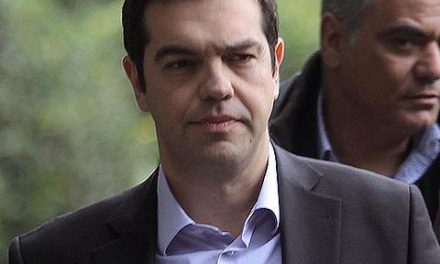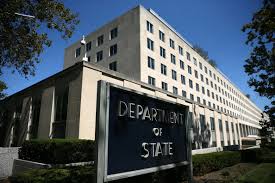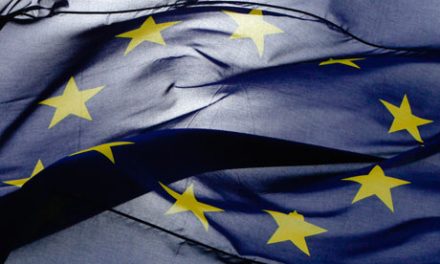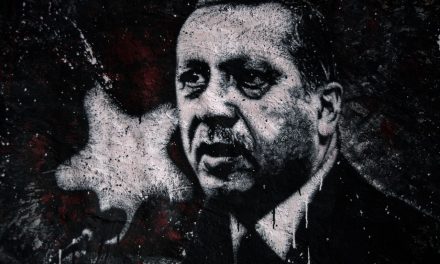There is no doubt that, in the last decade or so, Turkey is going through its most crucial historical phase since its establishment.
Turkey’s relationship with Europe has always been problematic, fraught with cultural complexities, misunderstandings and security considerations, some of which date to the Ottoman period.
Until 1999, it could be said that the majority of EU states were content with, indeed relied upon, Greece’s veto to block any progression of Turkey’s accession towards Europe. However, the ‘Earthquake’ diplomacy and the subsequent warming of Greco-Turkish relations exposed and forced into the open a residual European bias towards Turkey’s entire European orientation.
A major obstacle that impedes Turkey’s EU pathway, and determines relations with neighbouring Greece, is undoubtedly the Cyprus problem.
Until recently, Ankara failed to accurately assess the extent of the damage which the Cyprus problem had inflicted on its diplomacy, both with regard to its broader relationship with Greece and its policy on European integration.
Ultimately, Turkey’s accession to the European Union depends on a whole series of factors converging over the short-to middle-term that would transform the Turkish polity, economy and civil society.
For this transition to take place, Turkey first needs to remove the ‘Cyprus problem’ from the list of obstacles, otherwise its European track will be derailed – for as Greek PM Costas Simitis bluntly put it in 2003: ‘the Green Line in Nicosia separates Ankara from Brussels’.
Of course, much has changed in the region since then. US political blunders and military adventurism in the broader Middle East, has fed the rise of trans-territorial radical Islamism with a penchant for terrorism and post-apocalyptic zealotry.
Militant Islamism threatens to engulf the Muslim world and dislodge Europe’s experimentation with multiculturalism that has been its idealistic aspiration since the end of the Cold War.
For a number of strategic, cultural, religious, geographic, historical, and economic reasons, Turkey finds itself at the heart of what has been controversially touted as the ‘clash of civilizations’.
To procure a deeper understanding of Greek-Turkish relations and the role of the EU, we first need to familiarise ourselves with the dynamics of the Cyprus conflict.
We need to distinguish between the search for a political settlement and the broader milieu of the conflict itself.
As with most protracted conflicts, the Cyprus conflict requires innovative and multi-dimensional approaches towards a solution. The exclusive concentration on formal diplomacy, striving for a political settlement, whilst neglecting the need for a shift in the conflictive relationship on the ground, is myopic of the contingencies of historical reciprocity.
2. A summation of the Cyprus talks reveals that ever since the acceptance of a bi-communal/bi-zonal federation, negotiations have followed a cyclical pattern wherein disagreements on the substantial issues have seen both sides regularly return to their entrenched positions.
In conceptual terms, disagreement over reunification has fundamentally revolved around its structural form and, at least implicitly, the nature of power-sharing.
Underlying these differences has been a current of mistrust between the two sides and a deep sense of insecurity, which the peace talks have not been able to convincingly address. In order to counter this fixation of mistrust and insecurity, common interests and mutual benefits that would result from a negotiated settlement, need to be emphasised and communicated in practical terms.
3. Most commentators treat the Cyprus dispute as either a conflict between two ethnic groups or as a manifestation of a broader Greco-Turkish rivalry. However, contrary to this analysis, the Cyprus conflict has never been between the island’s two ethno-communities or even between Greece and Turkey.
Rather the Cyprus conflict has essentially pitted one brand of majoritarianism against another: that is the Greek Cypriot community against Turkey. Aggravated by the absence of direct communication between Turkey and the Greek Cypriots, this dichotomy has been accentuated, in more vivid terms, by Turkey’s and the Republic’s interaction in EU institutions. By placing more emphasis on the relationship between the Greek Cypriot community and Turkey, this is an area where the EU can have a positive effect.
Although the EU is not the panacea, in the final analysis, one thing is certain: that the entrance of the EU into the Cyprus triangle has become a permanent fixture of the Cyprus conflict and may prove to be the link that provides a commonality for all players.
Dr Michalis S. Michael is senior research fellow at La Trobe University, Director of the Centre for Dialogue and author of Resolving the Cyprus Conflict: Renegotiating History


















